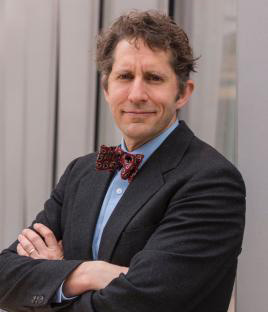
My research focuses on the collective system of thinking and knowing, ranging from the distribution of attention and intuition, the origin of ideas and shared habits of reasoning to processes of agreement (and dispute), accumulation of certainty (and doubt), and the texture—novelty, ambiguity, topology—of understanding. I am especially interested in innovation—how new ideas and practices emerge—and the role that social and technical institutions (e.g., the Internet, markets, collaborations) play in collective cognition and discovery. Much of my work has focused on areas of modern science and technology, but I am also interested in other domains of knowledge—news, law, religion, gossip, hunches, machine and historical modes of thinking and knowing. I support the creation of novel observatories for human understanding and action through crowd sourcing, information extraction from text and images, and the use of distributed sensors (e.g., RFID tags, cell phones). I use machine learning, generative modeling, social and semantic network representations to explore knowledge processes, scale up interpretive and field-methods, and create alternatives to current discovery regimes. My research has been supported by the National Science Foundation, the National Institutes of Health, the Air Force office of Science Research, and many philanthropic sources, and has been published in Nature, Science, Proceedings of the National Academy of Science, American Journal of Sociology, American Sociological Review, Social Studies of Science, Research Policy, Critical Theory, Administrative Science Quarterly, and other outlets. My work has been featured in the Economist, Atlantic Monthly, Wired, NPR, BBC, El País, CNN, Le Monde, and many other outlets.
At Chicago, I am Director of Knowledge Lab, which has collaborative, granting and employment opportunities, as well as ongoing seminars. I also founded and now direct on the Computational Social Science program at Chicago, and sponsor an associated Computational Social Science workshop. I teach courses in augmented intelligence, the history of modern science, science studies, computational content analysis, and Internet and Society. Before Chicago, I received my doctorate in sociology from Stanford University, served as a research associate in the Negotiation, Organizations, and Markets group at Harvard Business School, started a private high school focused on project-based arts education, and completed a B. A. in Anthropology at Brigham Young University.
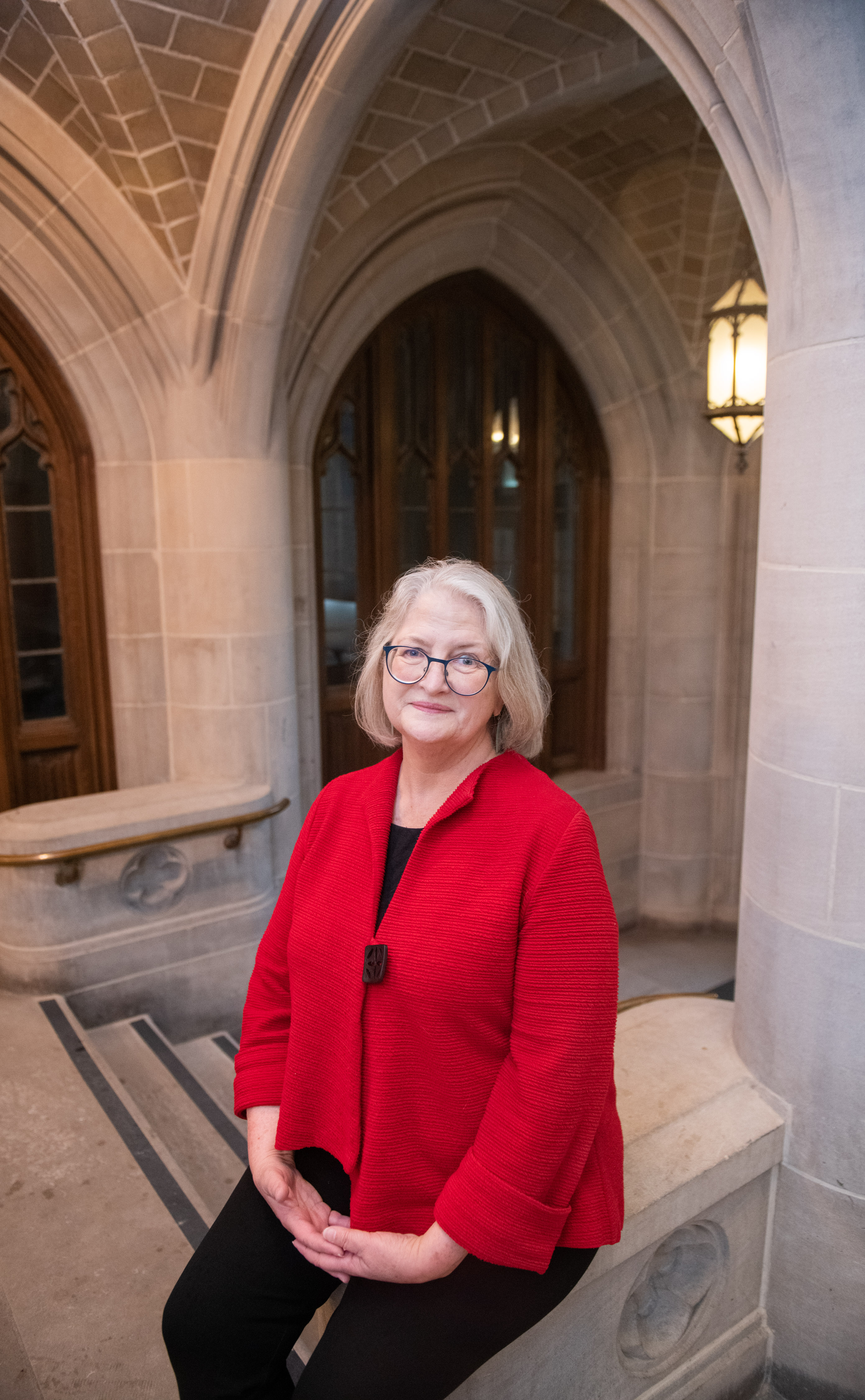
Elisabeth S. Clemens (A.M. 1985, Ph.D 1990) is a Professor of Sociology at the University of Chicago as well as a former Master of the Social Sciences Collegiate Division. Her research explores the role of social movements and organizational innovation in political change. Clemens' first book, The People's Lobby: Organizational Innovation and the Rise of Interest Group Politics in the United States, 1890-1925 (Chicago, 1997) received best book awards in both organizational sociology (1998) and political sociology (1999). She is also co-editor of Private Action and the Public Good (Yale, 1998), Remaking Modernity: Politics, History and Sociology (Duke, 2005), Politics and Partnerships: Voluntary Associations in America's Past and Present (Chicago, 2010; winner of the 2012 Virginia Hodgkinson Research Prize from ARNOVA), and the journal Studies in American Political Development. She is now completing Civic Nation which traces the tense but powerful entanglements of benevolence and liberalism in the development of the American nation-state.
Professor Clemens has served terms as chair of both the political sociology and comparative historical sociology sections of the American Sociological Association, as a member of the Social Science Research Council Program on Philanthropy and the Third Sector, and as President of the Social Science History Association for 2012-13.
Recent Research / Recent Publications
Clemens, Elisabeth S. 2020. Civic Gifts: Voluntarism and the Making of the American Nation-State. University of Chicago Press.
Clemens, Elisabeth S. 2016. What Is Political Sociology? Cambridge: Polity Press.

Terry Clark is interested in using decision-making theory to approach urban politics and other social phenomena.
Clark is international Coordinator of the Fiscal Austerity and Urban Innovation Project, which is surveying city officials across the U.S. and in thirty-five other countries.
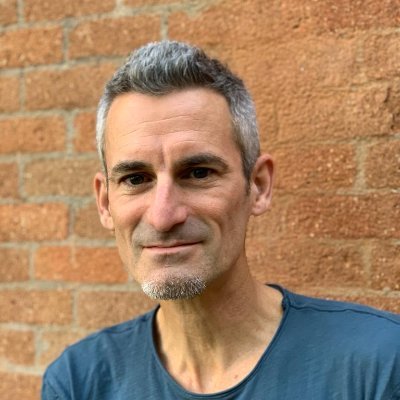
Neil Brenner is a critical urban theorist, sociologist and geographer who is interested in all aspects of research on cities and urbanization within the social sciences, the environmental humanities, the design disciplines and environmental studies. His writing and teaching focus on the theoretical, conceptual and methodological dimensions of urban questions, and on the challenges of reinventing our approach to urbanization in relation to the crises, contradictions and struggles of our time. Brenner has made influential contributions to scholarly debates on critical urban theory, the critique of capitalist urbanization, urban restructuring, state space, the political economy of rescaling, variegated neoliberalization and planetary urbanization. His current work is focused on the question of how “hinterlands”—the non-city territories, infrastructures and ecologies that support urban life—are being remade under contemporary supply-chain capitalism. This inquiry aims to connect the study of urbanization more directly to the analysis not only of primary commodity production (the historical geographies of agro-industrial and extractive capitalism) but also to the critical exploration of contemporary environmental crises and emergent struggles for postfossil—and postcapitalist—planetary futures.
Brenner’s most recent books are New Urban Spaces: Urban Theory and the Scale Question (Oxford, 2019) and Critique of Urbanization: Selected Essays (Bauwelt Fundamente, 2016), as well as the edited volume Implosions/Explosions: Towards a Study of Planetary Urbanization (Jovis, 2014). Brenner’s previous books include New State Spaces: Urban Governance and the Rescaling of Statehood (Oxford University Press, 2004) and the co-edited volumes Cities for People, not for Profit: Critical Urban Theory and the Right to the City (with Peter Marcuse and Margit Mayer; Routledge 2011); and Spaces of Neoliberalism: Urban Restructuring in North America and Western Europe (with Nik Theodore; Blackwell, 2003). Brenner’s writings have been widely translated into other languages, including complete books or essay collections published or forthcoming in Chinese, Japanese, Portuguese, Spanish and Turkish.
Prior to his return to the University of Chicago in 2020, Brenner served as Professor of Urban Theory at Harvard’s Graduate School of Design and as Professor of Sociology and Metropolitan Studies at New York University. Brenner serves or has previously served on the editorial boards of several urban studies and economic geography journals, including International Journal of Urban and Regional Research, Urban Studies, Antipode, Cambridge Journal of Regions, Economy and Society and Environment and Planning A: Economy and Space. During the previous two decades, Brenner has supervised or co-supervised Ph.D. research in Sociology, Geography, History, Political Science, American Studies, Law & Society, Urban Planning and Architecture, among other fields.
Recent Research / Recent Publications
Neil Brenner, New Urban Spaces: Urban Theory and the Scale Question. New York: Oxford University Press, 2019.
Neil Brenner, 城市,地域,星球:批判城市理论 / City, Territory, Planet: Studies in Critical Urban Theory. Translated by Li Zhigang, Xu Jiang, Cao Kang and others. Beijing: Commercial Publishers, 2019.
Neil Brenner, Espaços da Urbanização: o urbano a partir da teoria crítica. Observatório das Metrópoles series, Letra Capital Editora: Rio de Janeiro, 2018.
Neil Brenner, Stato, spazio, urbanizzazione. Translated and edited by Teresa Pullano. Milan: Guerini Scientifica, 2017.
Neil Brenner, Critique of Urbanization: Selected Essays. Berlin/Basel: Bauwelt Fundamente, Birkhäuser Verlag, 2016.
Neil Brenner, La explosion de lo urbano. Santiago de Chile: ARQ ediciones, 2016.
Neil Brenner ed., Implosions/Explosions: Towards a Study of Planetary Urbanization. Berlin: Jovis, 2013.
Neil Brenner, Peter Marcuse and Margit Mayer (eds.), Cities for People, not for Profit: Critical Urban Theory and the Right to the City. New York and London: Routledge, 2011.
Neil Brenner, New State Spaces: Urban Governance and the Rescaling of Statehood. New York: Oxford University Press, 2004.
Neil Brenner and Nik Theodore (eds.), Spaces of Neoliberalism: Urban Restructuring in Western Europe and North America. Oxford and Boston: Blackwell, 2002.
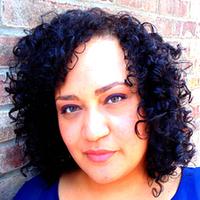
My research agenda deals with race, work & organizations, and social movements. My first line of work—in the area of race, social movements, and the professions—is primarily concerned with how resistance to racism shapes the professions. My first book, Black Power Professionals: The Black Power Movement and American Social Work (2014, Columbia University Press) details the impact of the Black Power movement on the profession of social work. My second research area is concerned with diversity as a racial project. I am interested in how the notion of diversity works as a tool to co-opt progressive racial policy, movements, and discourse. In this area I research the role of diversity discourse in institutions, higher education policy, and in the law.
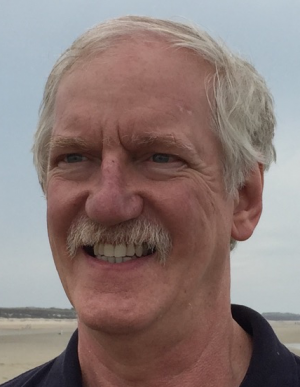
Luc Anselin is a native of Belgium, where he did undergraduate work and a master's degree in economics and econometrics at the Free University of Brussels (VUB). His PhD is from Cornell University in the interdisciplinary field of Regional Science.
Anselin comes to the University of Chicago from Arizona State University where he was a Regents' Professor and held the Walter Isard Chair. He was the founding Director of the School of Geographical Sciences and Urban Planning. He also started and directed the GeoDa Center for Geospatial Analysis and Computation. Before ASU, he was a Professor at the University of Illinois, Urbana-Champaign, where he directed the Spatial Analysis Laboratory in the Department of Geography and was a Senior Research Scientist at the National Center of Supercomputing Applications (NCSA). He previously held appointments at the University of Texas at Dallas, West Virginia University, the University of California, Santa Barbara and the Ohio State University. He has held (joint) appointments in a range of disciplines, including Geography, Urban and Regional Planning, Economics, Agricultural and Consumer Economics, Political Economy and Political Science.
Anselin is the developer of the SpaceStat and GeoDa software packages for spatial data analysis. He was elected Fellow of the Regional Science Association International in 2004 and was awarded their Walter Isard Prize in 2005 and William Alonso Memorial Prize in 2006. He was elected to the National Academy of Sciences in 2008 and the American Academy of Arts and Sciences in 2011.
Anselin’s publications include many hundreds of articles and several edited books in the fields of quantitative geography, regional science, geographic information science, econometrics, economics, and computer science.
Recent Research / Recent Publications
Anselin, L., P. Amaral. “Endogenous Spatial Regimes.” Journal of Geographical Systems, 2023 (DOI:10.1007/s10109-023-00411-2).
Anselin, L., S. Rey. “Open Source Software for Spatial Data Science.” Geographical Analysis 54, 2022: 429-438 (DOI:10.1111/gean.12339)
Lin, Q, M. Kolak, B. Watts, L. Anselin, H. Pollack, J. Schneider, B. Taylor. “Individual, Interpersonal, and Neighborhood Measures Associated with Opioid Use Stigma: Evidence from a Nationally Representative Survey.” Social Science and Medicine 305, 2022: 115034 (DOI:10.1016/j.socscimed.2022.115034).
Algeri, C., L. Anselin, A. Fabio Forgione, C. Migliardo. “Spatial Dependence in the Technical Efficiency of Local Banks.” Papers in Regional Science 101 (3), 2022: 685-716 (DOI:10.1111/pirs.12669)
Anselin, L., X. Li and J. Koschinsky. “GeoDa. From the Desktop to an Ecosystem for Exploring Spatial Data.” Geographical Analysis 54, 2022: 439-466 (DOI:10.1111/gean.12311)
Zhu, R, L. Anselin, M. Batty, M-P Kwan, M. Chen, W. Luo, T. Cheng, C.K. Lim, P. Santi, C. Cheng, Q. Gu, M.S. Wong, K. Zhang, G. Lü, C. Ratti (2021). The Effects of Different Travel Models and Travel Destinations on COVID-19 Transmission in Global Cities. Science Bulletin 2022 (DOI:10.1016/j.scib.2021.11.023)
Talen, E. and L. Anselin. “Tracking Sixty Years of Income Diversity Within Neighborhoods: The Case of Chicago, 1950-2010.” Cities 121, 2022: 103479 (DOI:10.1016/cities.2021.103479).
Rey, S., L. Anselin, P. Amaral, D. Arribas-Bel, R. Cortes, J. Gaboardi, W. Kang, E. Knaap, Z. Li, S. Lumnitz, T. Oshan, H. Shao and L. Wolf. “The PySAL Ecosystem: Philosophy and Implementation. Geographical Analysis, 54 2022 : 467-487 (DOI:10.1111/gean.12276).
Saxon, J, J. Koschinsky, K. Acosta, V. Anguiano, L. Anselin and S. Rey. “An Open Software Environment to Make Spatial Access Metrics More Accessible.” Journal of Computational Social Science 5, 2022: 265-284 (DOI:10.1007/s42001-021-00126- 8)
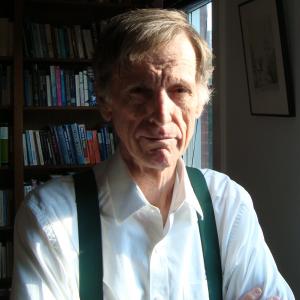
Andrew Abbott is the Gustavus F. and Ann M. Swift Distinguished Service Professor in the Department of Sociology and the College at the University of Chicago. Abbott took his BA (in history and literature) at Harvard in 1970 and his PhD (in sociology) from the University of Chicago in 1982. Prior to his return to Chicago in 1991, he taught for thirteen years at Rutgers University.
Known for his ecological theories of occupations, Abbott also pioneered algorithmic analysis of social sequence data. He has written on the foundations of social science methodology and on the evolution of the social sciences and the academic system. He has published twelve books and eighty articles and chapters.
His work includes The System of Professions (Chicago 1988), a theoretical analysis of the professions and their development that won the ASA's Sorokin Award in 1991. He has also published a historical study of academic disciplines and publication (Department and Discipline [Chicago 1999]), a theoretical analysis of fractal patterns in social and cultural structures (Chaos of Disciplines [Chicago 2001]), and a collection of theoretical essays in the Chicago pragmatist and ecological tradition (Time Matters [Chicago 2001]). Abbott has written two texts, the first a short introduction to heuristics in the social sciences (Methods of Discovery [Norton 2004]) and the second a manual for research projects in libraries and on the Internet (Digital Paper [Chicago, 2014]). His most recent English-language books are Processual Sociology (Chicago, 2016) and Varieties of Social Imagination (Chicago, 2017). He has since published Faits et valeurs (College de France, 2020) in French and two books of original and reprinted material translated into Chinese: University Education and the Future of Knowledge (Da Xue Jiao Yu yu Zhi Shi de Wei Lai. SDX:2023) and A Place to Rest Before Moving On (She Hui Ke Xue de Wei Lai. Commercial Press, 2023).
Abbott's near-term project is to finish the first volume of his theoretical work on The Social Process. Before going on to the second volume, he hopes to write a short book on the future of knowledge, growing out of his writing on the theory and history of library research and on knowledge practices more generally.
An active teacher, Abbott has served on or chaired over 130 dissertation committees, and his students teach at universities and colleges throughout the United States. He served from 1993 to 1996 as Master of Chicago's Social Science Collegiate Division and as Chair of the Department of Sociology from 1999-2002. He has also chaired his university's Library Board and the task force planning the future of the University's libraries. Abbott edited Work and Occupations from 1991 to 1994 and the American Journal of Sociology from 2000 to 2016. He was President of the Social Science History Association in 2002/3. Abbott was Norman Chester Research Fellow at Nuffield College, Oxford, in 1997 and has continued to visit Oxford regularly since. He is a member of the American Academy of Arts and Sciences and in 2011 received the degree of Docteur Honoris Causa from the Universite de Versailles St-Quentin-en-Yvelines.